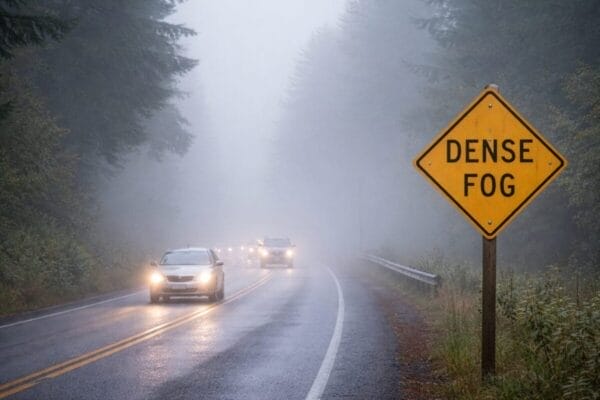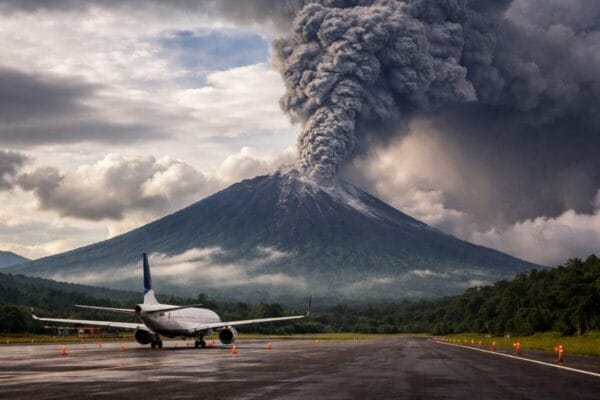A “manga‑prophecy tsunami” due on July 5 has sent tremors through the travel sector—not the earth, but traveler confidence. The prediction, drawn from Ryo Tatsuki’s manga Watashi ga Mita Mirai (“The Future I Saw”), suggests an epic Pacific Ocean rupture beneath southern Japan, a tsunami triple the size of the 2011 disaster. Styled as Japan’s “New Baba Vanga,” Tatsuki saw this apocalyptic scene in her 2021 reprint, triggering real-world rumblings across tour boards and airline manifests.
Immediate Ripples: Tourism Hit
- Air travel down 50–83 %:
Bloomberg Intelligence reports summer bookings from Hong Kong falling by up to 50 %, with June–July windows crashing by 83 %. Airlines like Hong Kong Airlines and Greater Bay have scaled back flights to Kagoshima, Kumamoto, and Sendai - Hotel and tour slowdown:
East Asian tour operators report cancellations skyrocketing. In Tokyo and Kyoto, small‑group experiences and off‑beat agrotours have slashed itineraries as anxious tourists hit pause. - Economic toll:
Nomura Research Institute warns potential revenue loss of up to ¥560 billion (~$3.9 billion) in tourism if the trend continues.
🛡️ Industry Defensive Strategies
1. Pro‑active reassurance & campaigns
Japan’s National Tourism Organisation along with local governors including Miyagi’s Yoshihiro Murai are loudly countering fear with messages of safety:
“There is no scientific basis… Japanese people aren’t fleeing”
Takahashi from JNTO’s Tokyo office says, “We’re spotlighting preparedness infrastructure—early warning systems, evacuation drills, drills every visitor can join”—a narrative reshaping fear into empowerment.
2. Flexible refund and rescheduling policies
Airlines and hoteliers have introduced lenient cancellation policies valid through mid-July, buying consumer confidence. Travel agencies in Hong Kong, Taiwan, and South Korea are offering free rebooking or full refunds for dates around July 5.
3. Creating “Fear-Credit” Travel Packages
Some DMCs (destination management companies) are turning anxiety into opportunity—marketing stays as “Disaster-Preparedness Holidays,” bundling earthquake drills and safety tours with sightseeing.
🌐 Predictive Outlook: Late July Rebound or Lingering Slump?
Short term (next week):
Bookings will remain soft through July 7, but fundamentals hold firm: Japan welcomed 3.9 million visitors in April alone. Government’s proactive narrative and absence of seismic events should curb panic.
Mid term (July–August):
If July 5 passes without incident, fear-based cancellations could reverse swiftly—mirroring patterns post-2011, when tourism rebounded after Fla Shocks subsided. Air capacity reductions in July and August from Hong Kong Airlines already reflect market sensitivity .
Long term (H2 2025):
This stunt tests brand resilience. Japan’s positioning—well-rehearsed emergency readiness and world-class crisis response—can transform this moment into a proof point. The sector may soon pivot to campaigns like “Safe & Prepared Japan,” reinforcing trust through stories of readiness.
🔍 Final Take: Myth Meets Market Reality
The travel industry now sits at the intersection of myth-making and market forces. On paper, the prediction offers no scientific basis—seismologists emphasize quake forecasting remains impossible. Yet the emotional reach is real. As The Guardian notes, “holiday bookings to Japan are down…” due to this phenomenon.
Tourism leaders are responding with speed and intelligence: reassuring messages, operational flexibility, and creative packages. If July 5 passes peacefully, Japan is likely to see a sharp rebound by late summer, buoyed by pent-up demand from East Asia—and perhaps a deeper trust in the country’s resilience. However, if more fear-driven content emerges post-July 5, the downturn could drag into autumn.
The story here isn’t about tectonics; it’s about tourism’s adaptability in an age where memes and myths can drive real-world markets. The travel sector’s ability to respond—calmly, swiftly, and empathetically—will determine whether “tsunami anxiety” is merely a blip or the start of a new travel-season mantra.
Stay informed, stay alert. Follow Global Travel Wire.


















